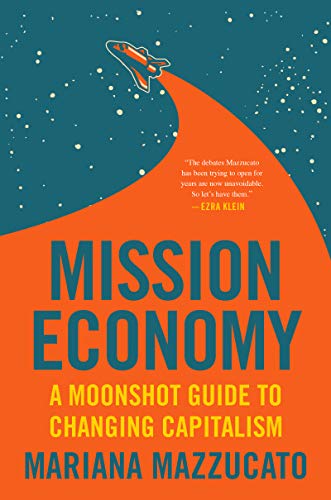20 Capitalism Books That Separate Thought Leaders from Amateurs
Insights from Satya Nadella, Bill Gates, and Paul Krugman highlight critical capitalism books for deeper economic understanding





What if the economic system that shapes so much of our lives is far more complex—and contested—than most realize? Capitalism, often seen as the engine of prosperity, is simultaneously praised, critiqued, and reimagined across decades and continents. Today, understanding capitalism's many faces is more urgent than ever as societies wrestle with inequality, climate change, and technological disruption.
Leaders like Satya Nadella, CEO of Microsoft, have drawn from deep economic histories, endorsing works such as Thomas Piketty's analysis of wealth inequality. Meanwhile, Bill Gates highlights thoughtful critiques like Paul Collier’s call for ethical capitalism reform. These voices reflect a diverse, expert-driven dialogue, showing how these books inform not only policy but also business leadership and social responsibility.
While these expert-curated books provide proven frameworks, readers seeking content tailored to their specific economic background, industry focus, or learning goals might consider creating a personalized Capitalism book that builds on these insights with customized depth and practical application.
Recommended by Steven Pinker
Cognitive psychologist and author
“With clarity and grace, Johan Norberg reminds us that openness to things and ideas from others is the only route to well-being.” (from Amazon)
by Johan Norberg··You?
by Johan Norberg··You?
Drawing from his extensive experience as a historian and senior fellow at the Cato Institute, Johan Norberg argues for the critical role of free markets in fostering prosperity and innovation. He challenges the prevailing narrative that capitalism primarily benefits a select few, instead illustrating how global capitalism has lifted millions out of poverty and spurred technological progress. Through incisive analysis, including discussions on trade, inequality, and social exclusion, you gain a nuanced understanding of capitalism's complex impact on today’s world economy. This book suits anyone seeking a thoughtful defense of market economies amid growing skepticism and geopolitical shifts.
Recommended by Paul Krugman
New York Review of Books
“It seems safe to say that Capital in the Twenty-First Century, the magnum opus of the French economist Thomas Piketty, will be the most important economics book of the year—and maybe of the decade.” (from Amazon)
by Thomas Piketty, Arthur Goldhammer··You?
by Thomas Piketty, Arthur Goldhammer··You?
After analyzing extensive historical data across multiple countries, Thomas Piketty developed a detailed examination of wealth accumulation and inequality trends over centuries. You learn how returns on capital consistently outpace economic growth, leading to widening disparities that challenge democratic values. The book dives deep into economic structures and political responses shaping inequality, with chapters exploring wealth concentration since the eighteenth century. If you seek a rigorous understanding of capitalism's evolving dynamics and the forces driving economic inequality, this book offers a solid foundation, though its dense analysis demands focused attention.
This tailored book explores the core principles and real-world impacts of capitalism with a focus shaped by your unique background and interests. It examines capitalism’s evolution, economic mechanisms, and social consequences, providing a personalized pathway through complex ideas adapted to your specific goals. By synthesizing diverse perspectives and in-depth analysis, it reveals how capitalism operates in different contexts, from global markets to local economies. The approach is designed to deepen your understanding by connecting foundational theories to contemporary challenges and opportunities, all aligned with your personal learning priorities. This personalized guide ensures you engage deeply with the nuances of capitalism in a way that matches your experience and ambitions.
Recommended by Yancey Strickler
Cofounder and former CEO, Kickstarter
“Capitalism as we know it has gotten us this far, but to take the next steps forward as a society and species we need new ways of seeing and acting on our world. That's exactly what Rebecca Henderson's book helps us do. This is a smart, timely, and much-needed reimagining of what capitalism can be.” (from Amazon)
by Rebecca Henderson··You?
by Rebecca Henderson··You?
Rebecca Henderson, a Harvard Business School professor, challenges the entrenched idea that business exists solely to maximize shareholder profit. Instead, she presents a thoughtful critique of free market capitalism's environmental and social costs, grounding her insights in economics, psychology, and organizational behavior. You’ll explore how companies can evolve toward models that harmonize profit with social justice and ecological sustainability, supported by case studies of pioneering firms and discussions on government and financial reforms. If you want a nuanced understanding of capitalism’s moral challenges and practical alternatives, this book offers a clear-eyed, well-researched pathway.
Recommended by Jamie Dimon
CEO of JPMorgan Chase
“Insightful and inspirational. Ken reminds us of a very important lesson—that capitalism does work. An authentic, up-by-the-bootstraps story by a shining example of the American dream.” (from Amazon)
by Ken Langone··You?
by Ken Langone··You?
Ken Langone’s memoir emerges from decades as a foundational figure in American business, co-founding Home Depot and serving on the New York Stock Exchange. In this book, you get a candid look at his rise from humble beginnings on Long Island to billionaire entrepreneur, revealing the gritty realities behind major deals and the legal battles that shaped his career. Langone goes beyond autobiography, making a case for free enterprise as the engine of opportunity, illustrating how hard work and perseverance can unlock the American Dream. This is a practical read for anyone wanting insight into valuation, deal-making, and the personal grit behind headline successes.
Recommended by Lina Alhathloul Yemencantwait
Coauthor, human rights advocate
“Hi friends ! Please read @shoshanazuboff’s book THE AGE OF SURVEILLANCE CAPITALISM, it’s my best read of 2021. If you don’t have time, please watch this interview at least :” (from X)
by Shoshana Zuboff··You?
Drawing from her extensive academic career at Harvard Business School and deep involvement in human rights policy, Shoshana Zuboff meticulously explores the rise of "surveillance capitalism," a new economic order where corporations predict and manipulate behavior for profit. You learn how this unprecedented form of power operates through "behavioral futures markets" and impacts democracy, privacy, and individual autonomy. Chapters detail the mechanisms of behavioral modification and the digital architecture that threatens personal freedom. This book is particularly suited for those concerned with the ethical and societal consequences of technology-driven capitalism and the future of democratic governance.
by TailoredRead AI·
This tailored book explores the dynamic landscape of modern capitalism with a focus on actionable steps tailored to your interests and background. It examines how contemporary economic shifts reshape markets, business practices, and societal impact, offering a personalized pathway to grasp and apply these concepts effectively. The content reveals practical approaches to adopting capitalism strategies over a 90-day timeline, blending foundational knowledge with forward-looking insights that match your specific goals. By focusing on your unique perspective, this book facilitates deeper understanding and sharper application of economic change in real-world contexts, making complex ideas accessible and relevant to your individual journey.
Recommended by Mark Suster
American entrepreneur and VC at Upfront Ventures
“@zachcoelius I highly recommend Americana. It’s enlightening. And tells US history through capitalism. And then this book - Splendid Exchange - does a great job of the same though globally. Changed so much about my understanding of the world” (from X)
by Bhu Srinivasan··You?
by Bhu Srinivasan··You?
Bhu Srinivasan, a media entrepreneur shaped by diverse American regions, examines 400 years of U.S. capitalism through the inventions and industries that defined its history. You’ll explore how innovations like the telegraph and railroads, as well as brands such as KFC, connect with broader economic trends and cultural shifts. The book offers specific insights into the evolution of American enterprise, from Andrew Carnegie’s rise to the roots of Silicon Valley startups. If you want to understand American history through the lens of business and innovation, this narrative will expand your perspective; however, those seeking a purely political or social analysis might find it less central.
Recommended by The New York Times Book Review
“[A] sweeping treatise on inequality in America. . . . A rallying call.” (from Amazon)
by Robert B. Reich··You?
by Robert B. Reich··You?
After decades as a public policy professor and government official, Robert B. Reich lays bare the widening economic divide in America, exposing how power and money have reshaped capitalism to favor the few. You’ll gain a clear understanding of how myths like merit-based pay and free markets mask systemic inequalities, supported by detailed chapters dissecting corporate influence and wage stagnation. This book suits anyone interested in the intersection of economics and democracy, particularly those looking to grasp why the middle class is shrinking and what policy shifts could restore balance. Reich’s pragmatic tone encourages civic engagement without sugarcoating the challenges ahead.
Recommended by Colson Whitehead
Pulitzer Prize-winning author
“Baptist has a fleet, persuasive take on the materialist underpinnings of the 'peculiar institution.'” (from Amazon)
by Edward E Baptist··You?
by Edward E Baptist··You?
Edward E. Baptist, a history professor at Cornell University, wrote this book to challenge conventional narratives about American economic development by exposing how deeply slavery was woven into the rise of capitalism. You gain a detailed understanding of how the expansion of slavery fueled the transformation of the U.S. economy, illustrated through personal slave accounts and plantation records that reveal the human cost behind economic growth. The book particularly benefits those seeking to grasp the intersection of economic history and social injustice, offering insights into the roots of modern American capitalism. Chapter analyses and the use of intimate narratives make the systemic connections clear without abstraction.
Recommended by Declan Ganley
Entrepreneur and CEO at Rivada Networks
“NYU Stern Business School Professor @ThomasPHI2 nails all of this in his book 'The Great Reversal'. Here's a review I did on it in 2019” (from X)
by Thomas Philippon··You?
by Thomas Philippon··You?
Thomas Philippon challenges the common narrative that capitalism's flaws stem from globalization or inherent market failures, instead spotlighting the growing concentration of corporate power in America. Drawing on extensive research, he reveals how dominant firms suppress competition through lobbying, inflating prices and hampering investment and innovation. You'll find detailed analyses like the comparison of U.S. cell-phone pricing with Europe's, where competitive markets yield lower costs. This book is especially suited for those interested in economic policy, market structures, and the forces shaping inequality. If you want to understand why American markets have tilted away from free competition and what that means for growth, this book offers a compelling exploration without oversimplifying the issues.
Recommended by The Sunday Times (UK)
“A lively, accessible and provocative book.” (from Amazon)
by Ha-Joon Chang··You?
by Ha-Joon Chang··You?
Ha-Joon Chang, an economics professor at the University of Cambridge, takes a critical eye to the assumptions underpinning free-market capitalism. Rather than accept prevailing orthodoxies, he exposes myths such as the idea of a truly free market and the belief that making the rich richer benefits everyone. You’ll find chapters that challenge common wisdom—like how the washing machine changed society more than the internet—and a final vision for reshaping capitalism toward more humane goals. This book suits anyone looking to understand the economic forces shaping our world beyond textbook theory, especially those skeptical of neoliberal narratives.
Recommended by Robert Kennedy
Environmental advocate and author
“Naomi Klein is a genius. She has done for politics what Jared Diamond did for the study of human history.” (from Amazon)
by Naomi Klein··You?
by Naomi Klein··You?
What if everything you thought about capitalism's role in climate change was mistaken? Naomi Klein, an award-winning journalist and climate justice advocate, argues that the free market ideology itself is at odds with addressing the climate crisis. You’ll explore how entrenched economic systems perpetuate environmental destruction and why transformative political and economic restructuring is necessary, with detailed case studies on disaster capitalism and community-led regenerative economies. This book is best suited for anyone ready to critically examine capitalism’s impact on the environment and consider bold alternatives to the status quo.
Recommended by Bill Gates
Co-Founder & Former CEO of Microsoft
by Paul Collier··You?
by Paul Collier··You?
After analyzing the growing social and economic fractures in Western societies, Paul Collier developed a thoughtful critique of capitalism’s current failures and practical proposals to mend them. Drawing from his experience bridging divides—from working-class Sheffield to elite Oxford and Africa—he challenges the neglect of ethical obligations that once upheld social democracy. You’ll gain a nuanced understanding of how cultural, economic, and political rifts undermine cohesion, and explore ideas like restoring a sense of belonging and patriotism as foundations for reform. This book suits anyone grappling with capitalism’s tensions or seeking realistic pathways toward a fairer economic order.
Recommended by The Spectator
“[A] reminder that capitalism can take kindlier forms: microfinance pioneer Yunus explains how he believes social enterprise can redeem what he regards as the failed promise of free markets.” (from Amazon)
by Muhammad Yunus, Karl Weber··You?
by Muhammad Yunus, Karl Weber··You?
What happens when economics expertise meets social activism? Muhammad Yunus, a Nobel Peace Prize winner known for pioneering microcredit, brings fresh perspective to capitalism with his concept of social business. This book guides you through how profit-driven ventures can be structured to solve human problems sustainably, with examples from around the world showing social businesses in action. You’ll explore practical frameworks for designing enterprises that balance financial viability with social impact, and understand the policy shifts needed to support these models. If you’re interested in economics that serves broader humanity, this book offers clear insights and real-world applications.
Recommended by Peter Boghossian
Philosopher and critical thinking expert
“@VivekGRamaswamy Congratulations on the success of a brilliant and desperately needed book.” (from X)
by Vivek Ramaswamy··You?
by Vivek Ramaswamy··You?
When Vivek Ramaswamy noticed the growing influence of politics within corporate America, he set out to expose the consequences of "stakeholder capitalism"—a trend that promises social progress but often masks economic and cultural manipulation. Drawing from his experience as a biotech entrepreneur and hedge fund partner, Ramaswamy reveals how corporations exploit social causes to divide consumers and dilute individual identity. You’ll gain insights into the inner workings of corporate boardrooms, Ivy League institutions, and nonprofit networks that perpetuate this phenomenon. This book suits those curious about the intersection of business, culture, and political influence, especially if you want to understand the forces reshaping American capitalism today.
Recommended by Roy Sebag
Founder of Goldmoney and Mene
“@CSir2017 @Goldmoney Dear Christopher, I strongly recommend you brush up on some economic history. The first book I implore you to read is called "The Wealth of Nations". In the book, a system of cooperation is described in great detail (capitalism) where the money being employed is Gold and Silver.” (from X)
by Adam Smith··You?
by Adam Smith··You?
Drawing from his background as a Scottish moral philosopher and pioneer of political economy, Adam Smith crafted this foundational text to analyze how individual self-interest can drive collective economic prosperity. You explore detailed observations of 18th-century economic and political structures, gaining insight into concepts like free markets, the division of labor, and the invisible hand. This book is ideal if you want to understand the roots of modern capitalism and the rationale behind market-driven economies. It may challenge those expecting a simple economic manual, as it blends philosophy with historical context and economic theory.
Recommended by Donald J. Trump
45th President of the USA, businessman
“Great book just out by very successful businessman @AndyPuzder. Always known as somebody who knows how to win, “Capitalist Comeback” will be a big hit!” (from X)
by Andrew Puzder··You?
Andrew Puzder, bringing decades of executive experience as former CEO of Carl's Jr. and Hardee's, challenges the negative perceptions surrounding capitalism by tracing its historical and political battles in America. You gain insight into how profit motives have driven economic growth and the political forces that have opposed them, especially under progressive movements and labor unions. The book digs into the Trump administration’s pro-business policies, illustrating how these shifts might revive economic prosperity. If you want to understand the intersection of politics and capitalism through the lens of a seasoned businessman who rose from minimum wage to industry leader, this book offers a clear narrative and context-rich examples, including Puzder’s own thwarted cabinet nomination.
Recommended by Dan Sullivan
Speaker, consultant, strategic planner, coach
by Milton Friedman··You?
by Milton Friedman··You?
Milton Friedman's decades of economic research culminate in this influential exploration of how competitive capitalism underpins both economic and political freedom. You delve into arguments about the role government should play, examining chapters that challenge the balance between state intervention and individual liberty. For example, his analysis of monetary policy and education vouchers offers concrete insights you can debate or apply. This book suits anyone eager to understand capitalism's philosophical foundations and policy implications, though it may feel dense if you're looking for casual reading or purely contemporary case studies.
Recommended by Ditmir Bushati
Former Albanian Minister of Foreign Affairs
“Fascinating book by @MazzucatoM on rethinking the capacities and role of government within our economy and society, recovering a sense of public purpose. As part of progressive politics we need to talk more about wealth creation instead of just redistribution of wealth.” (from X)
by Mariana Mazzucato··You?
by Mariana Mazzucato··You?
Mariana Mazzucato, a leading economist focused on innovation and public value, challenges conventional economic thought by urging a collaborative, mission-driven approach to capitalism. Through detailed analysis, she shows how mobilizing collective resources, much like the Apollo moon mission, can address complex issues such as climate change, inequality, and health crises. You’ll explore frameworks for restructuring government and corporate roles to foster shared risk and reward, making capitalism more inclusive and sustainable. Chapters tackle topics from redefining public purpose to creating new models of corporate governance, offering insights for policymakers and citizens alike who want a tangible path toward systemic change.
Recommended by Alberto Garzón
Economist and human rights activist, author
“@BrankoMilan Great news! thank you very much and congratulations, your book is very good.” (from X)
by Branko Milanovic··You?
by Branko Milanovic··You?
Branko Milanovic challenges the conventional wisdom that capitalism is a monolithic system by exploring its global dominance and diverse models in this thoughtful analysis. You’ll gain insights into why capitalism has outlasted other systems, alongside a critical look at its moral and economic trade-offs, such as inequality and instability. Chapters dissect liberal versus political capitalism, with case studies including Western economies and China, while also tackling contentious ideas like migration as an economic solution. If you want a nuanced understanding of capitalism’s current state and future challenges, this book equips you with both historical context and forward-looking perspectives.
Recommended by Robin Sloan
Novelist and California olive oil maker
“@p2p_editor (Not incidentally, our olive oil maker probably purchased olives from many landholding peasants rather than one landholding farmer who paid landless laborers a wage to harvest them. You should check out this book, it's great!)” (from X)
by Ellen Meiksins Wood·You?
by Ellen Meiksins Wood·You?
What happens when a historian with a keen eye on social relations examines capitalism? Ellen Meiksins Wood reveals that capitalism is not an inevitable outcome of human nature but a product of specific historical transformations in feudal Europe. You’ll explore how changes in social interactions and the environment crafted this economic system, with updated chapters on imperialism, globalization, and ecological crises. The book challenges simplistic views by distinguishing capitalism from other forms of commerce, making it essential for anyone curious about the roots and implications of modern economic structures.
Get Your Custom Capitalism Guide Fast ✨
Stop sifting through dozens of books—get tailored insights that fit your goals in minutes.
Trusted by hundreds of economics enthusiasts and professionals
Conclusion
This collection paints capitalism as a system fraught with contradictions and opportunities. Themes of inequality, sustainability, and cultural impact weave through many volumes, urging readers to grapple with capitalism’s future rather than accept it as a fixed reality.
If you’re interested in understanding capitalism’s moral and economic dilemmas, start with works like Rebecca Henderson’s Reimagining Capitalism in a World on Fire and Robert Reich’s Saving Capitalism. For those looking to ground their perspective historically, Adam Smith’s The Wealth of Nations and Bhu Srinivasan’s Americana provide foundational context. Combining these can accelerate your grasp on both theory and practice.
Alternatively, you can create a personalized Capitalism book to bridge the gap between general principles and your specific situation. These books can help you accelerate your learning journey and deepen your understanding of one of the world’s most influential economic systems.
Frequently Asked Questions
I'm overwhelmed by choice – which book should I start with?
Start with Capital in the Twenty First Century by Thomas Piketty for a foundational understanding of wealth inequality, or The Capitalist Manifesto by Johan Norberg for a clear defense of markets. These provide solid ground before exploring more specialized topics.
Are these books too advanced for someone new to Capitalism?
Not at all. Several books like I Love Capitalism! by Ken Langone offer accessible narratives, while others provide detailed analysis for deeper study. You can pick based on your comfort level and interests.
Should I start with the newest book or a classic?
Both approaches work. Classics like Adam Smith’s The Wealth of Nations offer timeless insights, while newer titles such as Reimagining Capitalism in a World on Fire address current challenges. Mixing both gives a balanced view.
Do I need to read all of these books, or can I pick just one?
You can pick books that align with your interests, whether it's economic history, ethics, or corporate influence. Each book stands on its own but reading several enriches your understanding of capitalism’s complexities.
Which books focus more on theory vs. practical application?
Capitalism and Freedom by Milton Friedman and The Wealth of Nations focus on theory and philosophy. For practical approaches, Building Social Business by Muhammad Yunus and Mission Economy by Mariana Mazzucato offer frameworks for change.
How can personalized Capitalism books complement these expert recommendations?
Personalized books tailor expert insights to your background and goals, making complex ideas more relevant and actionable. They bridge broad theories with your unique context, enhancing learning efficiency. Explore options to create your own Capitalism book.
📚 Love this book list?
Help fellow book lovers discover great books, share this curated list with others!
Related Articles You May Like
Explore more curated book recommendations



















